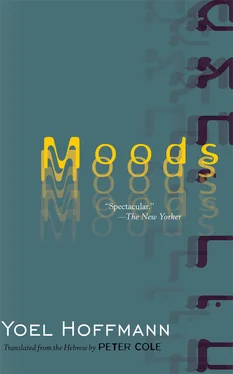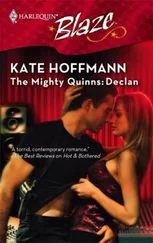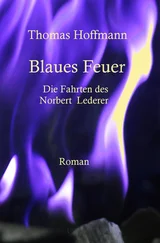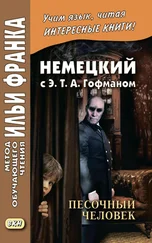We’ve forgotten to tell our readers about our neighbors. Mr. Nahmias occasionally makes a swerving kicking motion. He’s a fan of the Liverpool soccer team. The neighbor on the other side, Mr. Sapoznikov, goes up and down the stairs while reading Globes, the financial paper. Our Hello-how-are-you relations are much better with Mrs. Nahmias than they are with Mrs. Sapoznikov.
One floor down there’s an architect whose name is Pnei-Gal, but we don’t see him very often, because (so we’ve heard) he’s an ecological architect. Which is to say, he designs houses that work in harmony with the earth and so on.
Pnei-Gal, the architect, is a very thin man with narrow shoulders, but we usually see only his back. Mr. Sapoznikov, on the other hand, who owns an excavation equipment company, usually comes at us head on, that is, from the front.
Of all the women in our entry we’re partial to Mrs. Nahmias. Mrs. Sapoznikov looks too much like her husband, and the architect, Pnei-Gal, lives alone, or with another man.
We think this chapter’s all confused, maybe because we don’t really have a clear sense of our neighbors.
[162]
We won’t talk about our immediate family in this book. We’ve already done that in another book, and there too we’ve concealed certain things. But between us, which is to say, ourselves and ourselves, we know that every word in it is dedicated to Nurit in lieu of a thousand bouquets of flowers.
What can be revealed is the view through the window. The mountain. What’s in front of it and behind it and to its sides (and also above it) is always in motion. It alone stands there, as they say, immobile and silent.
And it has no name. And one can see it only as it is. And it can’t be explained or criticized or made fun of.
We ask God’s forgiveness for the fact that we’ve sometimes (in distress) prayed to it. But we worship the mountain.
[163]
At the foot of the mountain there’s a creek that dries up in summer and if you follow the water-worn pebbles and stones you’ll get (after three miles) to a pool containing translucent fish.
We remember the legend about the city beneath Lake Baikal in Siberia. We saw how, during the winter, when the lake is frozen, people lie on its surface and look into it and sometimes they go back to their villages along the shore with a mysterious expression on their faces.
Some of them never leave their wooden homes. They sit all winter long and look out at other lakes, the ones at the bottom of their souls. In any event, anyone who sees the sunken city (outside or within) knows something that the others don’t.
Imagine that they saw the sunken city and the world around it. And that they’d seen another lake. And people are also looking into that lake and seeing beneath it a sunken city wherein people are lying on the frozen surface of a lake and so on and on into infinity.
Once we knew a Russian man who, every morning (before the sun came up), would walk a white dog. We said good morning to him and he always answered (with a Russian accent) “wolking.”
[164]
We dream that a man (apparently us) buys a musical instrument, probably a mandolin or a Japanese koto for seventy-one thousand and several hundred (we don’t know what currency) though the instrument isn’t worth more than three hundred.
Leaping with joy, the two salesmen escape with the money to a place (apparently Rosh Pina) that’s full of people and where it’s hard to find a room for the night. In the end we pay four hundred (in that same currency) for a small, filthy room and then we wake up.
Generally speaking. Our behavior in dreams is irresponsible. The men expected no more than a few hundred. But we made some calculations on the tablecloth and proposed that astronomical sum ourselves.
At least we didn’t commit any crimes in this dream. Sometimes we murder. But usually we fly high in the air and dream that others don’t know how to fly, apart from one person who lives in Mevasseret Tziyon.
When we were little we understood one day (as we woke) that in fact (which is to say, in the waking world) we can’t fly, and our hearts broke.
[165]
Now our readers no doubt understand why we can’t continue the story we started (about Zivit and Ohad and so on). The gravitational field of that story is too strong. Even more so than the gravitational fields of physical bodies.
The readers can invite Zivit and Ohad (together or separately) for a cup of coffee. Then can ask them how they are and Zivit or Ohad (or both at once) will tell them.
Once we took a trip to London and saw, on Oxford Street, a character from one of the stories we’d written. We don’t particularly like that story and have almost completely forgotten what it says there. But we remember that this character (we called him Gurnischt) married a British woman and settled in London.
This movement between two worlds is imaginary. After all, someone is writing us as well. Someone is reading us. And someone is having critical thoughts. And someone is filing us away.
[166]
It’s the dentists who teach us which world is more real.
When we were little they sent us to Dr. Buchstabe, who lived (oddly) on Child’s Boulevard, behind the Ordeo Cinema in Ramat Gan. Dr. Buchstabe operated the drill by pressing a pedal with his right foot, just as they operated sewing machines at the time.
Dr. Buchstabe had a peculiar sense of humor. Before starting the drill (there were, we recall, also leather straps involved in the mechanism), he’d ask: Do you think it will hurt? The terrible pain caused by that mechanical drill taught us about history (the Inquisition, etcetera) better than any teacher ever did.
In Dr. Buchstabe’s waiting room there were pictures of famous dentists, but then again maybe they were just his ancestors, and the pungent smell that hung in the air would have driven away any and all thoughts of madeleines from Proust.
When they told us that Dr. Buchstabe had died we remembered the story about the man who heard that Edison (who invented the light bulb) had died and thought that from that day on darkness would reign in the world.
But after Dr. Buchstabe’s death, dentists continued to drill in our mouths. And now their drills ran on electricity.
[167]
How sad the days of childhood are. Everyone else is bigger and ugly and they’re always talking about the upper level of things. The bus is coming. It’s six o’clock. The curtain is dirty, etcetera.
They go up and down stairs. And enter and exit through doors, wearing all the while a practical expression, of the sort one sees on a taxi dispatcher.
None of them ever say, We’re going from here to there on the face of a planet, and the planet itself is spinning in a great darkness that has no end.
What could we do? The other children were bigger than we were as well, every time, apart from one girl, whom we suspected (mistakenly) might also have known about the planet and the darkness.
[168]
Today (January 8, 2009) the enemy attacked the Zilberman Residential Hotel in Nahariya (which is also called the Golden Age Home).
In the confusion, Rivkah Leibowitz (age eighty-six) pushed her wheelchair to the street and turned toward Ga’aton Boulevard. She crossed the road to the south side and rolled her chair into the Penguin Café.
There she ordered a deluxe breakfast (though she’d already had her hard-boiled egg and cream of wheat at the Zilberman) and took a women’s magazine from the newspaper stand.
First she read a long article about women who fake orgasm. Then a feature about the singer Sarit Hadad, and finally letters from readers (I’m thirty-six, my husband is a good man and a devoted father to our two children but).
When she was done with her breakfast (only half of the tuna spread was left on her tray) she wheeled herself west, toward the shore, and there she sat, beneath the crows, looking out at the great body of water.
Читать дальше












